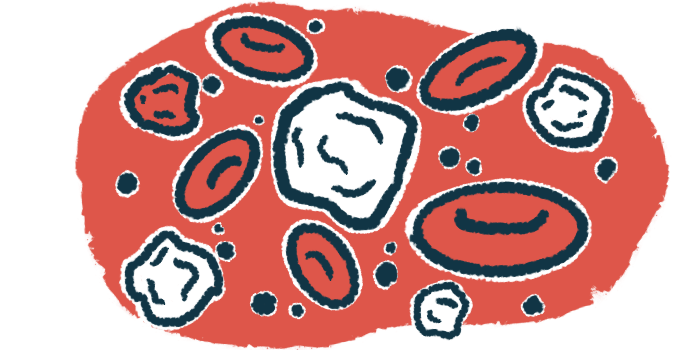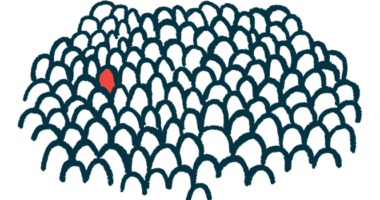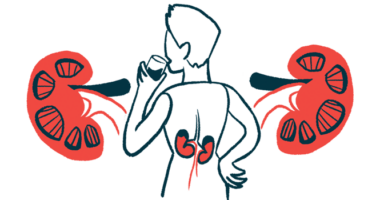Soliris Used to Successfully Treat aHUS in HIV Patient
Case shows need to recognize 'therapeutic options' in primary, secondary settings

A man with an HIV infection and secondary atypical hemolytic uremic syndrome (aHUS) was successfully treated with Soliris (eculizumab), a case study reported.
“This case highlights the unusual presentation and [origin of aHUS], demonstrating the importance of recognizing therapeutic options in primary and secondary settings,” the researchers wrote in the study, “Atypical hemolytic uremic syndrome in a patient with HIV treated with eculizumab: A case report,” which was published in ID Cases.
aHUS is a type of thrombotic microangiopathy (TMA), a group of diseases where blood clots form in small blood vessels, causing organ damage, especially in the kidneys.
The most common symptoms include hemolytic anemia — which occurs when red blood cells are destroyed faster than they’re produced — low platelet counts (or thrombocytopenia), and acute kidney failure.
The disease is caused by the abnormal activation of the complement cascade, a set of immunological proteins that trigger inflammation and blood clotting and help fight off disease-causing microbes. Although mutations in complement-related genes increase susceptibility to aHUS, usually an event, such as a viral or a bacterial infection, is necessary to trigger it.
TMA is the most frequent manifestation of human immunodeficiency virus (HIV) infection, particularly in advanced stages marked by opportunistic infections, high viral load, and low numbers of CD4 lymphocytes — a type of white blood cell.
A recent diagnosis of HIV
Researchers in Colombia described the case of a 64-year-old man with a recent diagnosis of HIV infection — in an unknown stage and without retroviral treatment — who developed aHUS and responded favorably to Soliris.
The patient was admitted to the emergency department with an intermittent fever for the past 15 days, associated with excessive nocturnal sweating, weakness, lack of energy, and progressive leg swelling.
He had lost 4 kg (around 9 pounds) in the past five months and received the first dose of a COVID-19 vaccine (Sinovac) two months before being admitted.
A physical examination revealed a rapid heartbeat and breathing rate, low blood pressure, severe dehydration, pallor, and noticeable swelling in both legs.
Blood tests showed signs of severe anemia, thrombocytopenia, and increased creatinine, a marker of kidney dysfunction, with no urine production that required hemodiafiltration — a kidney-replacement technique. The HIV viral load was high and the number of CD4-positive cells was low.
He was treated with antibiotics due to a suspicion of sepsis, an extreme response to infection that may be life-threatening. He didn’t respond to crystalloids (solutions containing a mixture of electrolytes) and was transferred to the intensive care unit for a high-dose vasopressor infusion to increase his blood pressure.
He developed refractory shock with multisystem failure and required ventilation. Due to his persistent anemia and thrombocytopenia, he also required blood transfusions and plasma replacement therapy. He was started on antiretroviral therapy (abacavir, lamivudine, dolutegravir), with no clinical improvement after 14 days.
Because the activity of the ADAMTS13 enzyme was not excessively reduced and that treatments had failed, the man was started on Soliris, a complement inhibitor approved to treat aHUS. The activity of ADAMTS13 is commonly assessed to distinguish aHUS from another form of TMA where the enzyme’s activity is virtually nonexistent.
“The absence of neurological manifestations, the severe renal involvement, and the preserved activity of ADAMTS13 led us to consider the possibility of complement-mediated TMA secondary to HIV infection, therefore the use of eculizumab was proposed,” the researchers wrote.
Soliris improved several blood parameters, increased urine volume, and lowered creatinine levels, allowing the man to be taken off renal function support and ventilation.
He was discharged with a recommendation to continue Soliris and to be regularly followed on hematology and infectious disease services.
“Blocking complement-mediated … damage has been used in the past on patients with secondary TMA to HIV, with variable clinical results and a high rate of recurrence. It is for this reason that indefinite treatment was considered in the patient described,” the researchers wrote.
One month after being discharged, the patient visited a hematology office with minor thrombocytopenia and anemia, but without showing signs of kidney dysfunction requiring dialysis.







